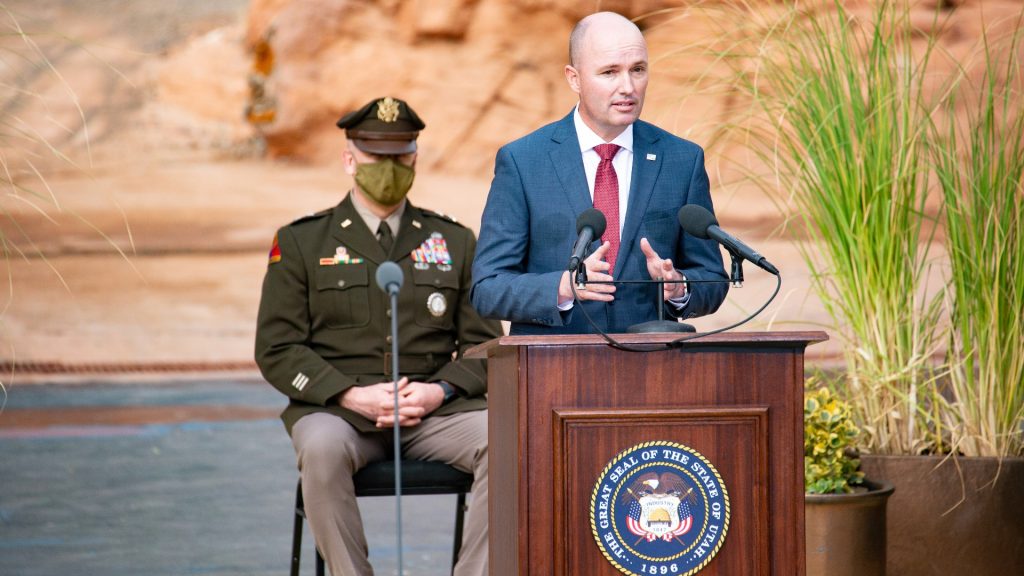Transgender Sports Banned In Utah Despite Governor’s Veto
Despite the governor's veto, a bill banning Utah transgender athletes in female sports is now law in the state of Utah.

The debate over whether transgender children should be allowed to compete in female sports is a closed matter in Utah. House Bill 11 requires all female sports programs to define players by their sex, not their gender preference, in a measure to protect fair play rights for girls and young women in schools and creates a commission that is to examine these terms on a case-by-case basis. Many believed the cause was lost when Utah Governor, Spencer J. Cox vetoed the bill, but the state legislature voted to overturn the veto over Utah transgender sports players, in the name of integrity in sports for the rights of natural-born women.
Some have argued that this is a human rights issue. Utah transgender activists claim that trans women are exactly the same as natural-born women, despite the differences in biology even after hormone therapy and surgery. Women who disagree and try to fight against allowing individuals born male to compete as women are often degraded, and even threatened with violence, on the public stage with little to no protection from politicians. Transgender swimmer, Lia Thomas, recently made headlines for crushing women’s swimming records.
Many believe Lia Thomas has an unfair competitive advantage being that Thomas still has male body parts, and hormone therapy does not change the skeletal structure of a person. When competing as a male, Thomas was 65th in the 500-yd freestyle and 554th in the 200-yd freestyle. Although the speed at which this swimmer races hasn’t changed, suddenly now that they are competing as a woman, they are winning and breaking records. It is situations like this that lead athletes and spectators everywhere to wonder, is this really about trans rights, or is this about an athlete doing everything possible to win, even changing their gender identity. Based on the results, this is a valid question. One which led plenty of people to support a measure that would ban Utah transgender athletes from competing under their gender identity, and register athletes for sports competitions based on sex, a proven biological foundation.

Governor Cox’s veto was shocking and highly publicized. Because of the sensitive nature of the topic, he released a statement explaining that his veto was not against the bill itself, but a lack of protections for schools and sports clubs against “Inevitable” litigation regarding Utah transgender activists and their dedication to forcing the ideology that trans women are the same as natural-born women. That in and of itself explains everything. Most lawmakers do not have extreme stances for or against trans women competing in women’s sports — if they did they would fight tooth and nail to protect women and their right to fair play, or rally behind trans movements wholeheartedly — in truth, they are merely concerned about lawsuits.
One may ponder why it is that these politicians do not consider the women, girls, and families being stripped of their right to fair play when considering the threat of litigation. Especially being that such lawsuits have been brought to the federal stage. This may be based on the fact that even judges are afraid to rule in favor of protecting the rights of natural-born women, who are born at a physical disadvantage to those born male by nature. Federal judge, Robert Chatigny, dismissed such a case back in 2021 claiming that the issue was “moot” because the lawsuit didn’t reach the courts until after the transgender athlete had graduated high school. Had this judge actually examined the situation, he could have set a precedent to protect women’s rights in sports, but because he refused to accept that responsibility, it is up to the states, and Utah’s transgender sports policy is now solidified.
The House voted 56-18 in favor of upholding the bill. The state Senate voted 21-8 in favor of the bill as well. Together the legislature has claimed to have upheld integrity in women’s sports and joined 12 other states which have already done so. The question of Utah transgender athletes has been answered, but how the federal government will respond and how each state reacts is up to them.







